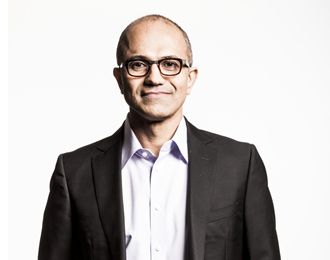 AMD supremo Lisa Su said that the company is planning to take a much bigger chunk of Intel’s server market thanks to the “incredible opportunities ahead” with AMD’s next-generation, 7-nanometer processors.
AMD supremo Lisa Su said that the company is planning to take a much bigger chunk of Intel’s server market thanks to the “incredible opportunities ahead” with AMD’s next-generation, 7-nanometer processors.
Speaking to the gathered throngs, Su said the company began sampling its 7nm graphics chip, or GPU, with select customers in the second quarter and expects to start shipping the product later this year,
Su said. AMD’s 7nm EPYC server CPU, code-named “Rome,” has also started sampling with select partners and will launch in 2019 while the 7nm client CPU will ship sometime after that, the CEO added.
“I do believe we have a very competitive position in 2019”, Su said.
AMD’s progress with its 7nm chip manufacturing process is significant because Intel has been struggling with its 10nm process, which is comparable to AMD’s 7nm and has been delayed for multiple years because of manufacturing issues.
Su reiterated that the company projects to reach mid-single digits in the server market share by the end of the year and double-digits in the mid-term. The company’s EPYC server chip line, which launched a little over a year ago, is now in over 50 platforms, including HPE’s ProLiant DL325 Gen10 server, which Su said offers significantly lower cost per virtual machine than Intel.
Su said a majority of the EPYC platforms have been shipping to multiple customers, with some deployments ranging from the hundreds to tens of thousands. That contributed to a 37 percent year-over-year growth in AMD’s Enterprise, Embedded and Semi-Custom business to $670 million for the second quarter.
Su said EPYC sales and shipments have grown more than 50 percent sequentially. After seeing a longer qualification period with customers for the first-generation of EPYC, code-named “Naples,” Su said the company hopes for the timeline to tighten with “Rome,” the next-generation chip.
“With Rome, I think there is enhanced interest,” she said.
Su said the company is aiming to increase EPYC adoption in the high-performance computing, data analytics and virtualized enterprise environment segments.
The company’s Computing and Graphics business grew 64 percent year-over-year to $1.09 billion, driven by strong sales of its Radeon graphics products and “continued growth” of its Ryzen CPU products. At the same time, the business saw a 3 percent dip from the previous quarter, which AMD attributed primarily to a dip in revenue from GPU products in the blockchain market.














